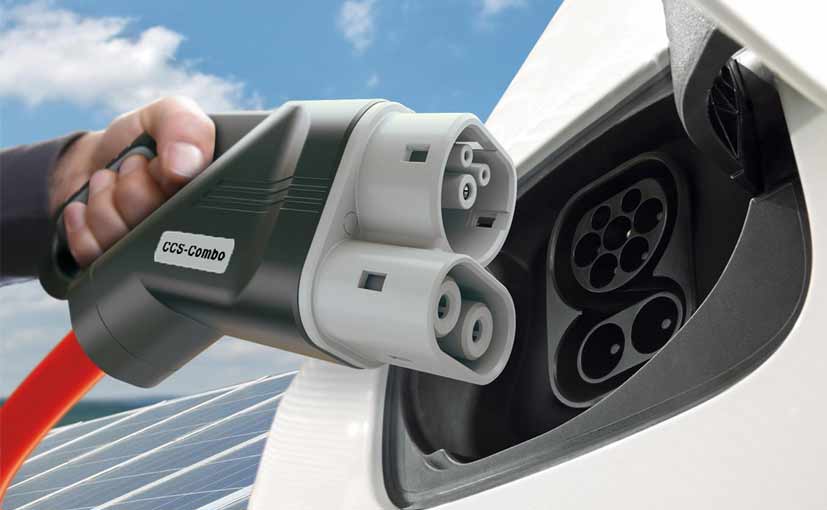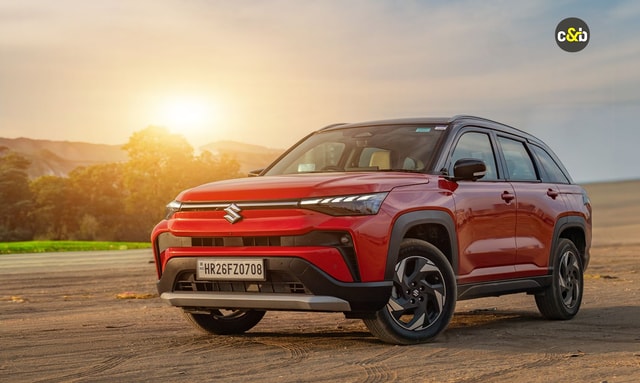EV Deadlines May Disrupt Industry: Auto Component Manufacturers

- Electric vehicle deadlines may disrupt auto industry
- The auto component industry has raised concerns on the proposed deadlines
- Smalll and medium enterprises will be hit by unrealistic deadlines
The Automotive Component Manufacturers Association of India (ACMA), has joined the growing number of voices from the automobile industry, warning of disruptions to the auto industry if a proposal to ban internal combustion engines in two-wheelers and three-wheelers. The government has proposed a complete replacement of three-wheelers with internal combustion engines by 2023, and to replace all two-wheelers below 150 cc by electric vehicles from 2025. The government proposal comes at a time when the Indian auto industry is already going through a transition phase by leapfrogging from Bharat Stage IV emission regulations to Bharat Stage VI norms which will come into effect from April 1, 2020.
Also Read: Electric Vehicle Deadline Impractical, Says Rajiv Bajaj
"The auto component industry in India is facing one of the severest challenges at this juncture, while on one hand it is faced with the daunting task of meeting the stringent deadlines of transitioning from BSIV to BSVI and a host of safety norms, on the other, poor vehicle sales for close to a year now has the industry worried. It is to be noted that India is the only country in the world to have by-passed a generation of technology as its commitment to produce vehicles with better emissions," said Ram Venkataramani, President, ACMA.
Also Read: Hero MotoCorp Urges For Realistic Roadmap For Electric Vehicles

A transformation to complete electric two-wheelers will also need infrastructure and supply chain
ACMA says the auto component manufacturing industry is support the government's intent of ushering in electric mobility to address the dual challenges of rising pollution and also the need to reduce dependency on fossil fuels. The industry body says that it appreciates the thrust given to localisation in the Phased Manufacturing Program (PMP) announced simultaneously with the FAME II (Faster Adoption and Manufacturing of Electric and Hybrid Vehicles) scheme. However, the apex body also cautions against undue haste, which may end up adversely affecting the industry as a whole, which will also affect more than 30 lakh personnel employed in the auto component industry.
Also Read: TVS Says Electric Vehicle Deadline May Create Consumer Discontent
"The auto component industry in India is a shining example of 'Make in India'; the industry with over USD 55 billion in turnover, exports a-third of its production to the developed countries, with engine and transmission-drive accounting for its bulk. The industry, dominated by small and medium enterprises, creates employment for more than 30 lakh personnel. Whilst the auto component industry whole-heartedly supports the Government of India's intent of ushering in e-mobility and has already started to prepare for it, a hundred percent transition in the next few years would translate into decimating the existing vibrant eco-system of this unique industry. Undue haste, without giving adequate consideration for localisation, could lead to rising imports; a phenomenon already, rapidly gaining ground with increasing electronic content in vehicles. Therefore, a pragmatic approach for the government would be to create a stable, long term road-map in consultation with the industry to ensure a smooth evolution rather than a disruption", added Ram.
The government's think-tank, Niti Aayog, has rolled out a draft policy to completely replace two-wheelers and three-wheelers with electric vehicles by 2025 and 2023. Industry observers and manufacturers are of the view that such a tight deadline will put the industry under pressure, already reeling from slow growth and the transition to BS-VI regulations. Most manufacturers have urged the government to roll out a well-planned and practical roadmap for electric vehicles, instead of slapping a deadline which may be difficult to meet.
Latest News
 car&bike Team | Feb 25, 2026Tata Passenger Electric Mobility, Shell Launch 21 EV Charging Stations Across IndiaThe newly launched charging stations are spread across Bengaluru, Chennai, Mysuru, Pune, and Vadodara.1 min read
car&bike Team | Feb 25, 2026Tata Passenger Electric Mobility, Shell Launch 21 EV Charging Stations Across IndiaThe newly launched charging stations are spread across Bengaluru, Chennai, Mysuru, Pune, and Vadodara.1 min read car&bike Team | Feb 25, 2026Over 1 Lakh Motorists to Get Toll Refund After Major Mumbai-Pune Expressway DisruptionMSRDC will refund Rs 5.16 crore in tolls to motorists affected by the Expressway Tanker Incident, which occurred earlier this month.1 min read
car&bike Team | Feb 25, 2026Over 1 Lakh Motorists to Get Toll Refund After Major Mumbai-Pune Expressway DisruptionMSRDC will refund Rs 5.16 crore in tolls to motorists affected by the Expressway Tanker Incident, which occurred earlier this month.1 min read car&bike Team | Feb 24, 20262026 KTM 250 Duke, 200 Duke Updated With New Colour OptionsThe 250 Duke gets two new colour options while the 200 Duke gets one.2 mins read
car&bike Team | Feb 24, 20262026 KTM 250 Duke, 200 Duke Updated With New Colour OptionsThe 250 Duke gets two new colour options while the 200 Duke gets one.2 mins read car&bike Team | Feb 24, 2026Mercedes-Benz CLA Electric Debuts In India: Bookings Open March 10This is the first time the CLA nameplate will be offered in an electric derivative with the EV claimed to offer 792km WLTP range.3 mins read
car&bike Team | Feb 24, 2026Mercedes-Benz CLA Electric Debuts In India: Bookings Open March 10This is the first time the CLA nameplate will be offered in an electric derivative with the EV claimed to offer 792km WLTP range.3 mins read car&bike Team | Feb 24, 2026Jeep Wrangler Willys 41 Special Edition Reintroduced: Priced At Rs 70.31 LakhThe Wrangler in this edition wears a military green paint scheme and is limited to just 41 units across India.1 min read
car&bike Team | Feb 24, 2026Jeep Wrangler Willys 41 Special Edition Reintroduced: Priced At Rs 70.31 LakhThe Wrangler in this edition wears a military green paint scheme and is limited to just 41 units across India.1 min read Jafar Rizvi | Feb 24, 2026New-Gen Toyota Fortuner Spied For The First TimeThe existing Toyota Fortuner has completed nearly a decade in India, and we could expect the new-gen SUV to make its India debut in 2027.3 mins read
Jafar Rizvi | Feb 24, 2026New-Gen Toyota Fortuner Spied For The First TimeThe existing Toyota Fortuner has completed nearly a decade in India, and we could expect the new-gen SUV to make its India debut in 2027.3 mins read
 Preetam Bora | Feb 24, 2026Hero Destini 110 Review: Simplicity, RefinedThe Hero Destini 110 is a no-nonsense commuter that is simple, comfortable and above all, fuel efficient. In 2026, when buyers are spoilt for choice, is it good enough to consider?1 min read
Preetam Bora | Feb 24, 2026Hero Destini 110 Review: Simplicity, RefinedThe Hero Destini 110 is a no-nonsense commuter that is simple, comfortable and above all, fuel efficient. In 2026, when buyers are spoilt for choice, is it good enough to consider?1 min read Preetam Bora | Feb 23, 2026TVS Apache RTX Road Test Review: Redefining the Entry-Level ADVAfter spending some time with the TVS Apache RTX in traffic, the daily commute, as well as on open highways, one thing becomes clear: the RTX is trying to redefine the entry-level ADV segment. But is it without fault?1 min read
Preetam Bora | Feb 23, 2026TVS Apache RTX Road Test Review: Redefining the Entry-Level ADVAfter spending some time with the TVS Apache RTX in traffic, the daily commute, as well as on open highways, one thing becomes clear: the RTX is trying to redefine the entry-level ADV segment. But is it without fault?1 min read Girish Karkera | Feb 20, 2026Road Test: 2025 VinFast VF7 AWD Sky InfinityFlagship all-electric SUV from the Vietnamese car maker gets most of the basics right.1 min read
Girish Karkera | Feb 20, 2026Road Test: 2025 VinFast VF7 AWD Sky InfinityFlagship all-electric SUV from the Vietnamese car maker gets most of the basics right.1 min read Jaiveer Mehra | Feb 18, 2026New BMW X3 30 Vs Mercedes-Benz GLC 300: Midsize Luxury SUV FaceoffWith the new X3 30, BMW has a direct competitor to the petrol GLC 300, but which is the luxury SUV for you?1 min read
Jaiveer Mehra | Feb 18, 2026New BMW X3 30 Vs Mercedes-Benz GLC 300: Midsize Luxury SUV FaceoffWith the new X3 30, BMW has a direct competitor to the petrol GLC 300, but which is the luxury SUV for you?1 min read Jafar Rizvi | Feb 15, 2026Maruti Suzuki Victoris: Long-Term Review - Report 1The Victoris is Maruti’s latest offering for the Indian market, and after spending some time with it, here are a few early impressions.1 min read
Jafar Rizvi | Feb 15, 2026Maruti Suzuki Victoris: Long-Term Review - Report 1The Victoris is Maruti’s latest offering for the Indian market, and after spending some time with it, here are a few early impressions.1 min read
























































































































